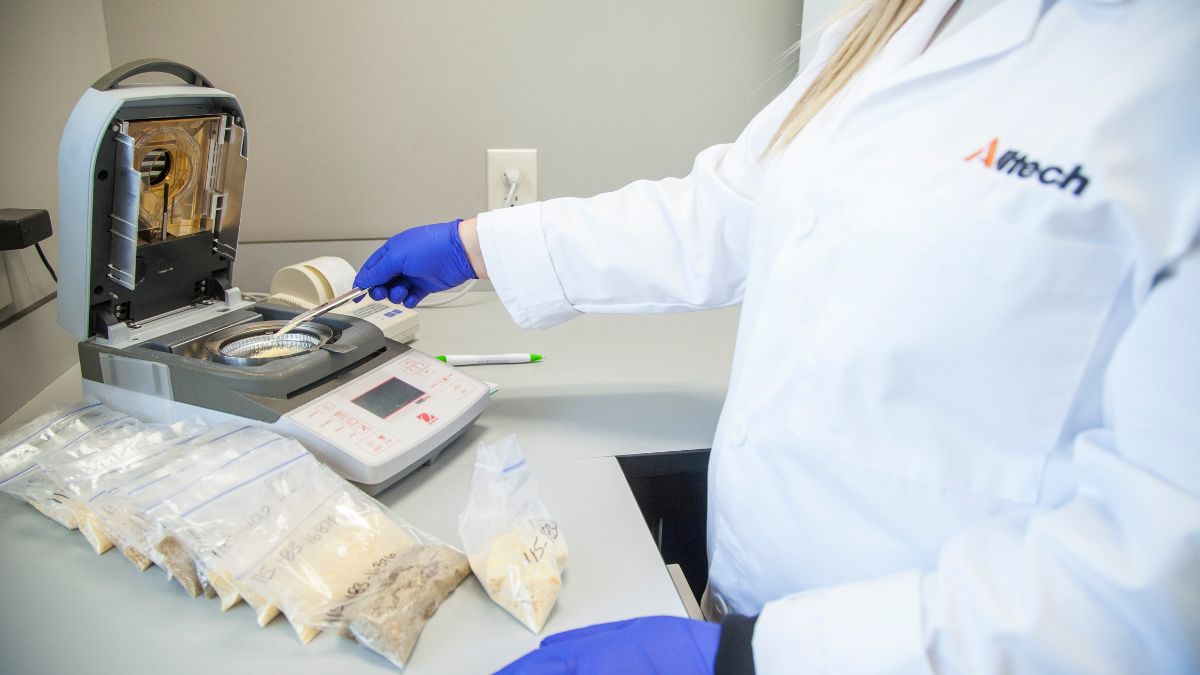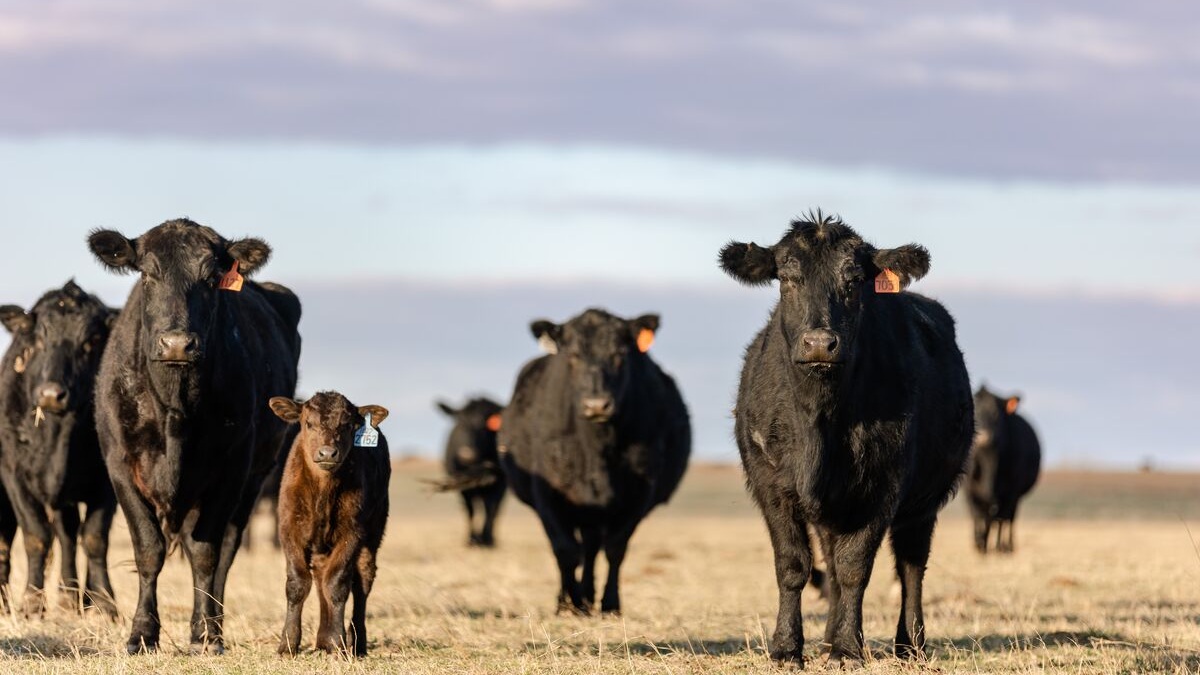Producers do not have to compromise performance and profitability for sustainability
Canadian agriculture leaders are facing pressure and uncertainty on all sides. Amid devastating wildfires, there’s a turbulent global economy, the impact of geopolitical tensions and mounting climate change pressure.
More than 300 representatives of the Canadian agriculture industry joined Alltech last week in Calgary, Alberta, to explore collaborative solutions to these significant challenges. Alltech ONE Calgary, the third stop of the Alltech ONE World Tour, examined strategies for remaining resilient despite uncertainty and focused on the importance of partnerships, innovation and taking a leading role in nourishing people and preserving the planet.
Canada is rapidly growing, and so is its demand for food. With fewer farmers, the country is producing more food on less land: Only 7% of Canada’s land is used for agriculture, a 37% decline over the past 60 years.
And yet, the country’s agri-food system is resilient, innovative and a major contributor to the Canadian economy. In 2022, the agri-food system employed 2.3 million people, provided one in nine jobs in Canada, and generated $143.8 billion (around 7.0%) of Canada’s gross domestic product (GDP).
“Canada will remain one of the world’s most important exporters, even as it faces the dual challenges of climate change and population and urban sprawl,” said Dr. Mark Lyons, Alltech president and CEO, who delivered the keynote address at Alltech ONE Calgary. “We’re going to have to meet demand now with less land, less labor and fewer resources. But we always know that in the face of challenges, we should never be afraid. We must push forward and think about things in a different way.”
A fresh approach — and a positive mindset — are vital to turning challenges into opportunities. Poised at the interface of nourishing the present and preserving the future, agriculture has the greatest potential to positively shape the future of the planet, he said.
“There is no other industry that plays such a fundamental role in terms of not only producing food, but also preserving our planet. That’s why we launched our vision and purpose of Working Together for a Planet of Plenty™,” Dr. Lyons said.
Working together, the agri-food community can provide nutrition for all, revitalize local economies and replenish the planet’s natural resources. We can create a healthy, sustainable food system, and we can do so in a way that is also economically sustainable — and profitable — for our agricultural producers.

Innovative, on-farm solutions can be both sustainable and profitable, said Dr. Patrick Ward.
‘You don’t have to compromise’
Governments and megabrands worldwide are making ambitious sustainability commitments, but they don’t really know how to achieve them, Dr. Lyons said.
“They need you. They need farmers and producers, and they need ranchers to actually achieve those goals,” he told attendees. “And they're really struggling to be able to connect the dots because they don't really know what their supply chain is made up of.”
Farmers, ranchers and producers need solutions that enhance the efficiency of their business and enable them to maintain sustainable margins. Innovative, on-farm solutions can be both sustainable and profitable, said Dr. Patrick Ward, Alltech applications manager for Europe and Asia-Pacific.
“You don’t have to compromise performance and profitability for sustainability,” he told ONE attendees.
Nutritional technologies can improve animal performance — and therefore profitability — while also offering sustainability benefits. Alltech’s nutritional solutions, for example, have been proven to improve production efficiency, reduce carbon footprint and help rid animal diets of toxins that can harm both the animal and the environment.
Alltech continues to invest in solutions that empower farmers and ranchers to reach their sustainability goals while supporting animal performance and profitability. Earlier this year, Alltech acquired Agolin, a company that has developed and produced plant-based nutritional solutions that improve herd performance, profitability and sustainability.
Dr. Ward explained Agolin’s research-backed sustainability benefits, including its effects on performance and methane reduction, and how the synergistic use of Alltech and Agolin technologies can improve animal welfare, increase feed efficiency and conversion, boost milk and meat production, reduce environmental footprint and increase profitability.
Sustainability can start with the cow.
“With Alltech’s natural products, you can meet your sustainability goals through reduced enteric methane emissions while, at the same time, driving performance and improving milk yield, fat- and protein-corrected milk (FPCM) and feed conversion efficiency,” he said.

Providing quality nutrition for all
Agriculture has gone from having the most important job in the world to having the two most important jobs in the world: feeding the world and reversing climate change.
“We have a moral imperative not to compromise nutrition — for the human or the animal — even as we seek environmental restoration,” said Dr. Vaughn Holder, ruminant research director at Alltech, who joined the conference virtually to discuss agriculture’s role in saving the planet.
We must meet the needs of the present without compromising the needs of the future.
The world’s population is projected to reach 10 billion by 2060. Seventy percent more food will be required by then, Dr. Holder said, but this is not our true challenge.
“One in 10 people on our planet are undernourished. World hunger is on the rise, affecting 811 million people in 2023,” he said. “One in four people are malnourished — that’s over 2 billion people worldwide.”
Poor nutrition is the single greatest threat to the world’s health, according to the World Health Organization.
“It is not enough to feed the world. We must provide nutrients,” Dr. Holder said.
To create a world of abundance for future generations, we must do more than feed the growing population. We need to nourish it with quality meat, milk, eggs and seafood that are high in protein and crops that are grown in healthy soil, all while working to revitalize local economies and replenish the planet’s natural resources.
A sustainable diet is one that provides sufficient energy and essential nutrients to maintain the good health of the population without compromising the ability of future generations to meet their nutritional needs. It must be accessible, available, safe, nutrient-dense, culturally acceptable, fairly produced and sparing of natural resources.
This can be accomplished by improving the health of animals and the soil, maximizing the value of feedstuffs, increasing the efficiency of the farm, and reinvesting in innovation. Alltech has been striving to meet these goals for more than 40 years, and our technologies help animals optimize the nutrients in their feed, thereby supporting the health and performance of livestock while also reducing their environmental impact.
Through collaboration and innovation, the agri-food community can create a world where science-based solutions help ensure sustainable food production for the global population. We must dig deeper to find the real solutions, leveraging the science and implementing the technologies that exist today, Dr. Lyons said.
“This is a time that calls for much more of all of us. We must believe in our purpose and have the confidence to stand strong,” he said. “We have a huge responsibility, but it is also a tremendous opportunity.”
Why are we bringing ONE to the world?
The Alltech ONE World Tour was inspired by the desire to connect with our customers, partners and friends in their markets. As our industry navigates significant challenges, we are determined to be with you every step of the way, highlighting opportunities and delivering global expertise on locally relevant issues.
We’re bringing Alltech ONE World Tour to the world so we can hear your stories, better understand your needs and find opportunities to collaborate. This means more people than ever will have the opportunity to engage with leading experts on global, regional and local market trends in agriculture, business, health and nutrition.
Learn more about our future Alltech ONE World Tour stops at one.alltech.com.
You can find highlights from Alltech ONE Calgary, including photos, speaker biographies and more at one.alltech.com/calgary
























